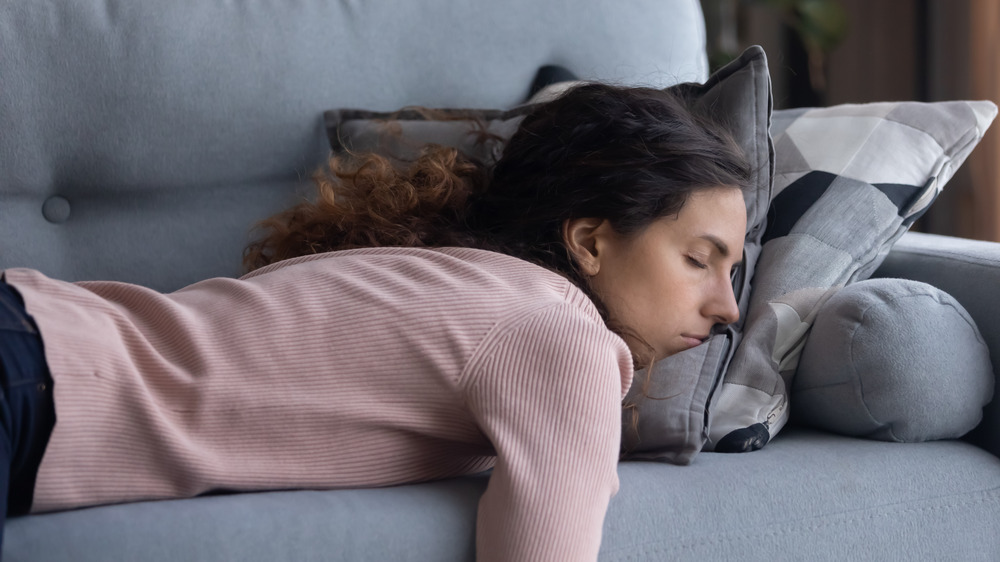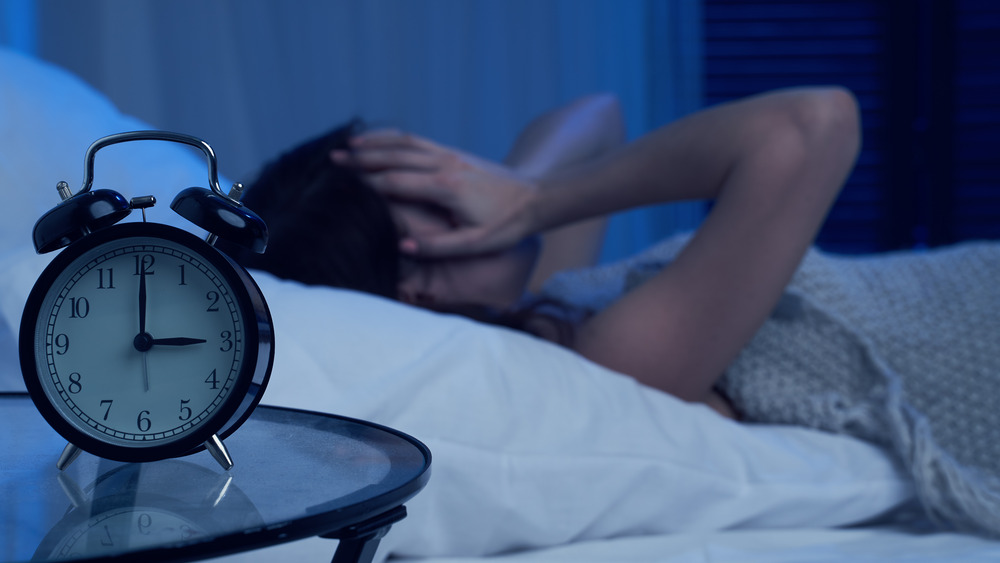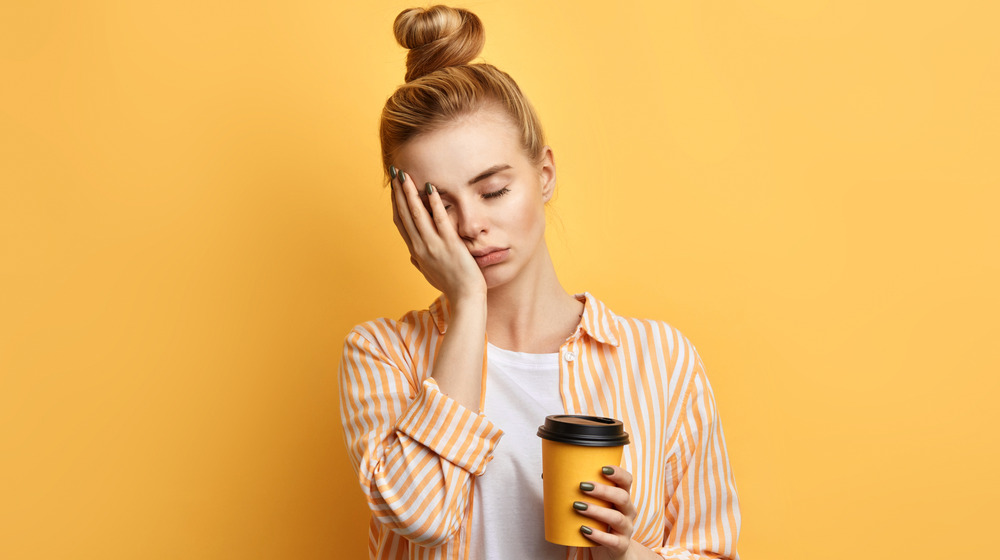What Does It Mean When You're Always Tired
It's probably not unusual for you to feel tired occasionally, especially if you've been extra active or stayed up late a lot. In fact, Healthline reported that as many as one-third of otherwise healthy adults and teens report feeling sleepy, making it quite common.
To counter this feeling, you might try to figure out how to catch a few more hours of sleep, but that might not actually solve your problem, depending on what the underlying cause of your exhaustion is. If you find that you're always tired, then you might wonder what it means about your health. Much of the time, chronic tiredness is actually a symptom of your lifestyle. However, if it comes on suddenly and you haven't changed much, it could be a harbinger of a serious condition or an illness.
While you may note that you feel fatigued after you've been busy, you can also feel sluggish if you're too sedentary, per Women's Health. "The human body gets more tired with progressive sedentary habits due to generalized deconditioning of the body and, ultimately, muscle loss," Sobia Khan, MD, assistant professor and director of the Women's Center for Comprehensive Care at Baylor College of Medicine, told the publication. However, overcoming this situation can be as simple as ensuring you're active at least 150 minutes each week.
If your tiredness isn't caused by being too active or too sedentary, there are other reasons you might struggle to keep your eyes open during the days.
The reasons you may be tired will surprise you
In addition to your activity levels, other benign things may cause your fatigue. Eating too many refined carbs could lead to spiking blood sugar, which could wreak havoc with your energy levels (via Women's Health). The inevitable crash leaves you exhausted, and if it happens a lot over the years, it could even cause insulin resistance, which makes you tired. To fix it, try adding protein sources to your carbs and cutting out some of the most sugary or refined items from your diet to see if things improve. Foods like okra and dried bonito broth help protect against fatigue (via Healthline).
Something as simple as inadequate hydration or heavy reliance on energy drinks could also be the culprit, according to Healthline. Drinking more water and cutting back on caffeine is worth a try. If you restrict calories too low, your energy may wane. Additionally, if you're not eating enough protein, you could feel extra tired. Try adding in more calories or grams of protein to see if your fatigue lessens.
A lack of sleep or sleeping at the wrong times can also zap your energy. Also, stress and depression can make you feel sleepy more often than usual. "When there is a shift in your emotional state, be it positive or negative, it is not at all uncommon for that change to also show up in some physical way in your body," Monifa Seawell, MD, told Women's Health.
Consider this if your fatigue continues
If your allergies are acting up, that could also make you feel sleepier than usual. According to Healthline, food allergies or sensitivities could be the reason you're not feeling like yourself. Seasonal allergies could also be to blame (via Woman's Day).
Your thyroid could also be the reason. The small gland located on your throat produces hormones, but if it doesn't make enough of them, you might be left with no energy at all, no matter how much you sleep. The condition is called hypothyroidism, and it's something your doctor can probably treat (via MedlinePlus). "Thyroid hormones have receptors on essentially every organ of the human body, and their deficiency can cause fatigue by excessively slowing the metabolic pathways," Dr. Sobia Khan told Women's Health.
If your tiredness is unusual and doesn't go away, you should consider talking to your doctor to get to the bottom of things. Your physician may choose to run bloodwork and other tests to get to the root cause of your tiredness.


